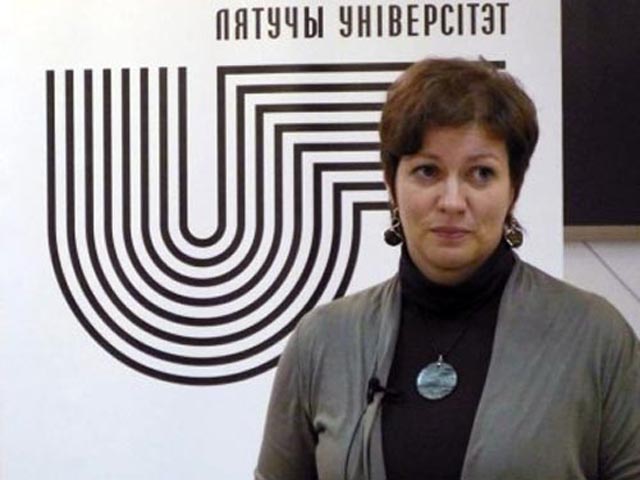Poland and Germany were both initiators and drivers of a New Eastern policy linked to the Eastern neighborhood and Russia/Soviet Union.
Tatsiana Vadalazhskaya: Why the University of Game and Game at the University are important

What is the difference between the Flying and traditional Universities, how does Game affect our existence in this world and us?
The EuroBelarus Information Service sums up the results of the past year of the Flying University.
Throughout the existence of the Flying University its relations with Game have changed significantly. 6-7 years ago, when the University has just been formed, the place of Game was determined.
“We talked about the organizational and action games that the methodological community was practicing, and said that this particular instrument, collective thinking organization technology, can be a particular technology for the University, too (as the University is a place for thinking),” the coordinator of the Flying University Tatsiana Vadalazhskaya says.
Later the methodologists started to discuss the game as a new basic ontological category (after activity and mental activity). And it led to searching (and finding) new meanings.
“Our university (just as all universities should do) responds not only to the question “What is the new world becoming?” But also “Who am I in this world?”, “What is my relation to this transformation?”
It is addressing these issues that pushes us to be the participators of these changes, Tatsiana Vadalazhskaya believes. However, we in some ways lack the tools of thinking and building answers to these questions. We can talk about the old days and turning points, so to speak, historically. But today’s knowledge of the constitutive, artificial nature of social world, relations, and culture gives us the opportunity to understand how the changes have been taking place. And today we can already critically analyze that. But in all this we can’t find ourselves; our modern knowledge prevent us from understanding our place here/
“The game appears in the Flying University as an attempt to catch a certain lifestyle, action, our organization and our existence. And it’s not a specific organizational and action game, not a larp, but rather a metaphor. And it is in this capacity that the game appeared in the discussions at the Flying University last year,” Tatsiana Vadalazhskaya explains.
In this regard, the following features of the game vision of the world can be identified.
Firstly, it’s the creative intention to form a complex system with the largest number of various elements and processes. After all, we are not just playing, but at the same time we are creating a game (by organizing space, relations, etc.). The second characteristic is co-creation, as we never create a game alone. The game exists only until the players follow it. Third, in game, we recognize the artificiality of the created world, but treat it seriously:
“Today, for me Game builds a different relationship with the idea of the University, and in this sense we can see the latter as an instrument through which we can play in the axial time. Game is a frame that gives the meaning to the work of the University. And these are two different things. In this context, schools of Masters of Games is a concentrated group of people who take this task of working with game and solve it with different types of thinking. For them, the game is a goal, not a means or a tool of organizing educational processes at the University.”
Others
-
Uladzimir Matskevich: The sooner the "Union State" is denounced, the better for Belarus
Not only does the “Union State” undermine the establishment of civilized relations with Europe, but it hinders the possibility of normal relations between Belarus and Russia.
-
Uladzimir Matskevich: The regime can no longer control the situation in the country
The authorities are unable to prolong the social contract with the people: there is no way out of the social crisis.
-
Press release of the BNP in connection with the next round of the dialogue in the format of the EU-Belarus Coordination Group
Belarusan National Platform of the Eastern Partnership Civil Society Forum welcomes the dialogue process in the format of the EU-Belarus Coordination Group, the third round of which was held in Minsk on 3-4 April 2017.
-
Hennadiy Maksak: Europe must react adequately to the events in Minsk
A new wave of political repressions should make the EU return to tougher policy towards the Belarusan regime.








Comments
From farewell to a new Eastern policy and towards a new development
Poland and Germany were both initiators and drivers of a New Eastern policy linked to the Eastern neighborhood and Russia/Soviet Union.